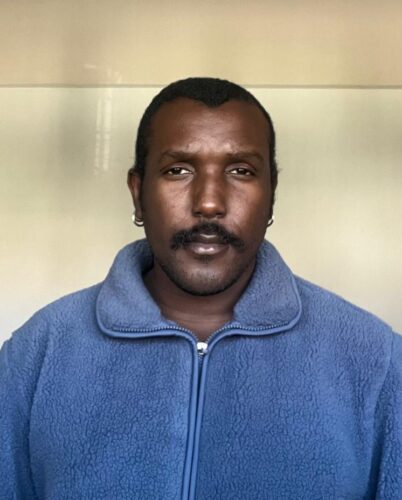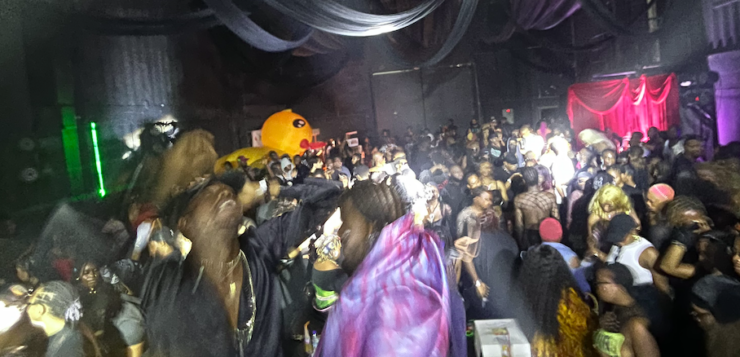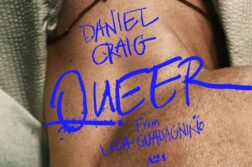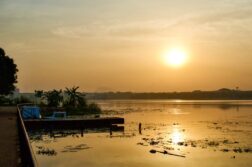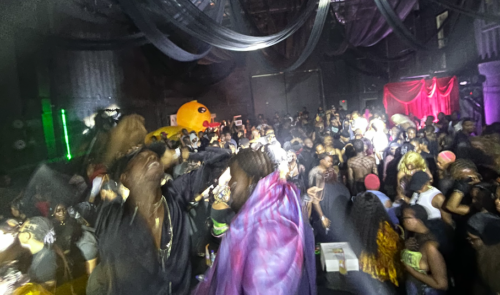
In Nigeria, if you’re not straight, you’re not safe. It’s a no-brainer. And while, yes, the rich can afford the luxury of trips to Europe and its many LGBTQ-affirming cities, the reality remains that many queer Nigerians are stuck in a perpetual state of heterosexual cosplay. But their resilience and resistance continues to take many different forms. Today, when the lights go out, and the religious, political, and aggressive fanatics retire, queer Nigerians materialize from the night and resort to one of the oldest forms of expression: dance.
In the last few years, many raves have been quietly popping up through Lagos, Nigeria’s unofficial capital, and the epicenter of Africa’s financial dealings. These raves, however small, have become a sanctuary for the oppressed—ironically, they welcome the same folks that the church, mosques, and even hospitals have rejected.
Here, strangers become kindred spirits, boundaries dissolve, and desires ignite in a world where inhibitions are left at the door. Friends meet up beforehand and get dressed. Trans folks embrace their identities freely, away from prying eyes and judgy scowls, and the rest of the night becomes an intoxicating escape from the rigidity of everyday life.
But the sound of electronic dance music for queer people isn’t just an escape—it’s a necessity. As more queer people get wind of these underground events, an unspoken bond forms with people from all parts of the LGBTQ+ community. The language of freedom is all that’s spoken, and for those who have nowhere else to belong, newfound families are secured. While mainstream clubs echo with the familiar rhythms of Afrobeats, in hidden corners of the city, a different kind of movement is unfolding. Under the heavy thrum of bass, a subculture has quietly taken root—a place where queer Nigerians can breathe, exist and, for a few hours, feel untouchable.
Sweat it Out, Raveolution, and Group Therapy, three of the most beloved underground events, and more than just nightlife fixtures; they are communities built on the unspoken understanding that survival is easier when you are not alone.
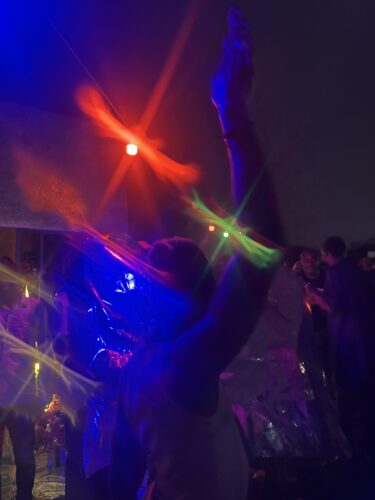
“I’ve fallen in love with house music. Honestly, it wasn’t my thing until I attended these raves. DJ sets are now a part of my daily routine too, especially as I look forward to the next edition of Sweat it Out, Raveolution, Group Therapy, and other raves that are popping up all over the city” said Angel, who danced the night away at “Sweat on the Mainland,” a collaborative effort between Sweat it Out and Mainland House.
“One thing that’s really special for me is that I get to be as queer as I possibly can,” said Tunmise, From my fashion, to the security that comes with the spaces, I feel free. Now add onto that the community, the hot men, and the great music? What more could a man want? I do not go anywhere else nowadays. It’s my one form of connection to multiple queer people.” said Tunmise at December’s Sweat it Out rave in Lagos.
Electronic Dance Music (EDM), a genre that has struggled to find its place in mainstream Nigerian music is quite poetic and provided a place for those who feel like they have none. The DJs who take the stage, the dancers who lose themselves in the beat are not just entertaining; they are creating a world where being different is not just accepted but celebrated.
“The Lagos rave scene is very accommodating, but even that can be a bad thing sometimes. Personally, I have not experienced any overtly discriminatory stares, but some women and queer men have. In any case, I love the music. Lagos raves were my first introduction to house music, and I’ve been a fan ever since. I’ve been over house parties for a while now, because I prefer to just dance throughout the night instead.” said Chiedu, at the November 2024 edition of Group Therapy NG.
Beyond all the community and freedom, some queer people are beginning to worry about the safety of these events in the future. While the nature of the queer ally is a loving feat, it can be hard to tell who is truly a supporter of queer rights. As such, some of these raves have expanded in size, and the crowds can be mixed. It also begs the question of whether these raves are better hidden underground, and if popularity might be a curse, instead of a blessing.
Thankfully, between the average Nigerian’s aloof response to house music (in favor of Afrobeats), and with top-of-the-line security present, there’s yet to be a report of physical harm at any rave. And the organizers of these events are determined to keep it that way.
Because, although the music eventually stops and the lights come back on, the impact of these nights lingers far beyond the dance floor. In a world that often seeks to confine and diminish them, queer Nigerians have found a way to reclaim joy on their own terms. These raves are more than just a temporary escape—they are proof that, even in the face of erasure, a community can thrive, love can persist, and freedom, no matter how fleeting, can always find a way to shine through the dark.
